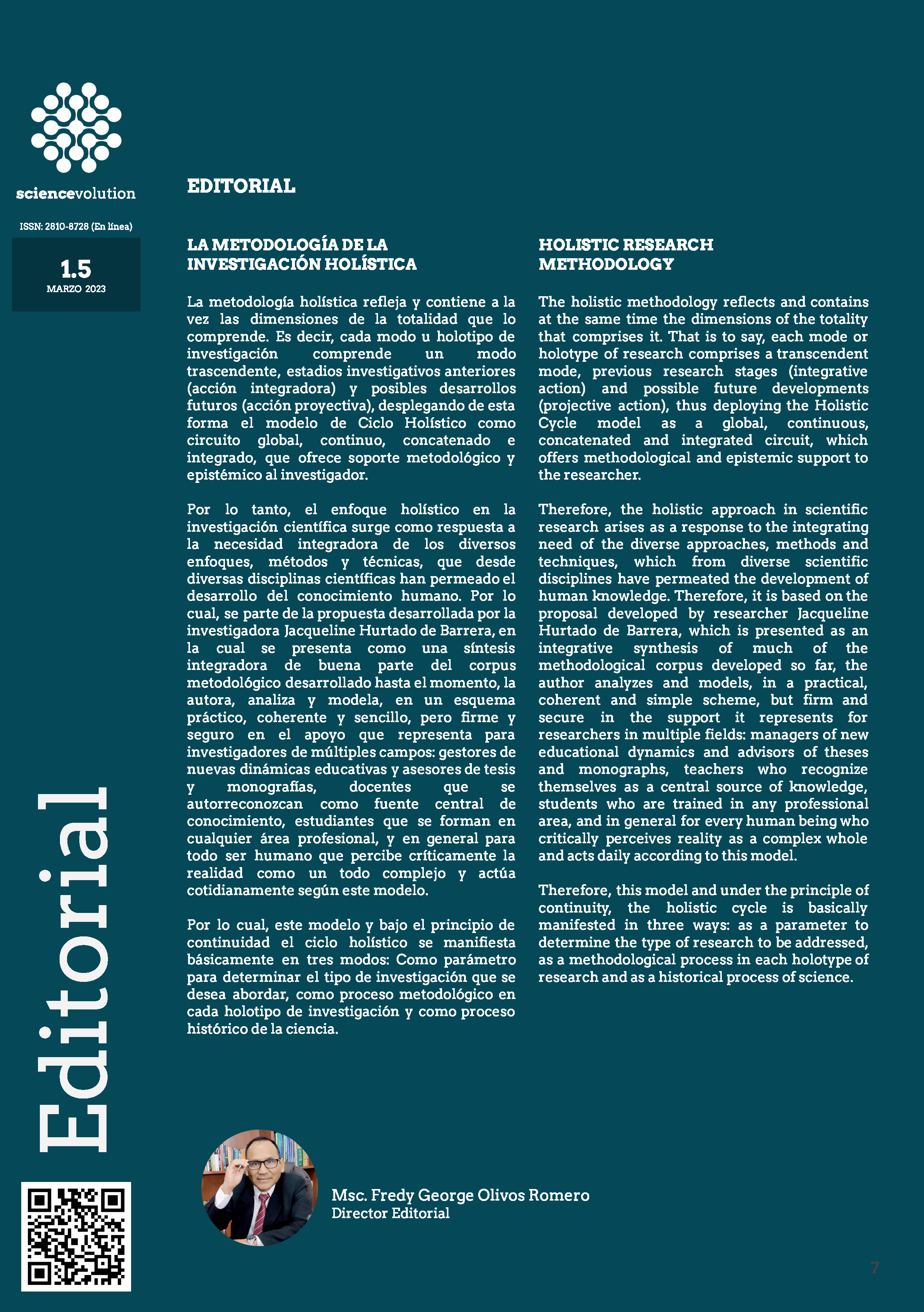Abstract
The holistic methodology reflects and contains at the same time the dimensions of the totality that comprises it. That is to say, each mode or holotype of research comprises a transcendent mode, previous research stages (integrative action) and possible future developments (projective action), thus deploying the Holistic Cycle model as a global, continuous, concatenated and integrated circuit, which offers methodological and epistemic support to the researcher.
Therefore, the holistic approach in scientific research arises as a response to the integrating need of the diverse approaches, methods and techniques, which from diverse scientific disciplines have permeated the development of human knowledge. Therefore, it is based on the proposal developed by researcher Jacqueline Hurtado de Barrera, which is presented as an integrative synthesis of much of the methodological corpus developed so far, the author analyzes and models, in a practical, coherent and simple scheme, but firm and secure in the support it represents for researchers in multiple fields: managers of new educational dynamics and advisors of theses and monographs, teachers who recognize themselves as a central source of knowledge, students who are trained in any professional area, and in general for every human being who critically perceives reality as a complex whole and acts daily according to this model.
Therefore, this model and under the principle of continuity, the holistic cycle is basically manifested in three ways: as a parameter to determine the type of research to be addressed, as a methodological process in each holotype of research and as a historical process of science.

This work is licensed under a Creative Commons Attribution-NonCommercial-NoDerivatives 4.0 International License.
Copyright (c) 2023 http://revista.sciencevolution.com/

